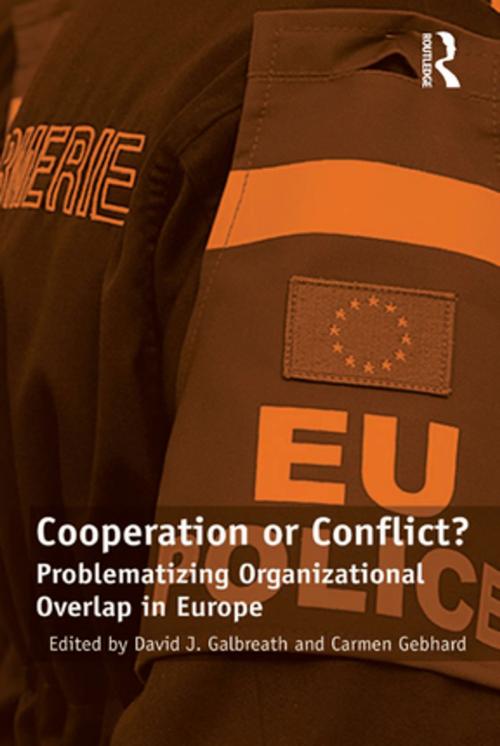Cooperation or Conflict?
Problematizing Organizational Overlap in Europe
Nonfiction, Social & Cultural Studies, Political Science| Author: | Carmen Gebhard | ISBN: | 9781317159698 |
| Publisher: | Taylor and Francis | Publication: | May 13, 2016 |
| Imprint: | Routledge | Language: | English |
| Author: | Carmen Gebhard |
| ISBN: | 9781317159698 |
| Publisher: | Taylor and Francis |
| Publication: | May 13, 2016 |
| Imprint: | Routledge |
| Language: | English |
Following the end of the Second World War, the creation of regional organizations in Europe provided niche functions to help ensure regional stability through security and transition. Yet, as the Cold War ended and the Soviet Union dissolved, each of these organizations evolved to have a post-Cold War role in the region. Since then, the level of convergence of norms, interests and objectives between these main regional organizations has increased considerably. Is there a common agenda in Europe? Does Europe still need so many organizational elements to tackle the major challenges? This book examines the way the EU, NATO, OSCE, and Council of Europe relate to and interact with each other, identifying the areas of positive convergence and divergence as well as areas of negative cooperation and conflict. By tracing the institutional development and regional integration in Europe, the book questions to what degree do European organizations maintain separate identities and most importantly do these organizations still offer a unique and useful service to regional stability. In developing this argument, policy areas analysed include: "
Following the end of the Second World War, the creation of regional organizations in Europe provided niche functions to help ensure regional stability through security and transition. Yet, as the Cold War ended and the Soviet Union dissolved, each of these organizations evolved to have a post-Cold War role in the region. Since then, the level of convergence of norms, interests and objectives between these main regional organizations has increased considerably. Is there a common agenda in Europe? Does Europe still need so many organizational elements to tackle the major challenges? This book examines the way the EU, NATO, OSCE, and Council of Europe relate to and interact with each other, identifying the areas of positive convergence and divergence as well as areas of negative cooperation and conflict. By tracing the institutional development and regional integration in Europe, the book questions to what degree do European organizations maintain separate identities and most importantly do these organizations still offer a unique and useful service to regional stability. In developing this argument, policy areas analysed include: "















